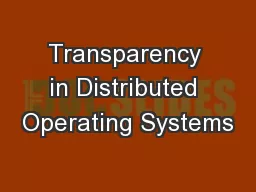PDF-THE KARNATAKA TRANSPARENCY IN PUBLIC PROCUREMENTS ACT, 1999
Author : stefany-barnette | Published Date : 2017-03-08
ARRANGEMENT OF SECTIONS Statement of Object and Reasons Sections CHAPTER I 1 Short title and commencement 2 3 Provisions not to apply to certain Projects 4 Exceptions
Presentation Embed Code
Download Presentation
Download Presentation The PPT/PDF document "THE KARNATAKA TRANSPARENCY IN PUBLIC PRO..." is the property of its rightful owner. Permission is granted to download and print the materials on this website for personal, non-commercial use only, and to display it on your personal computer provided you do not modify the materials and that you retain all copyright notices contained in the materials. By downloading content from our website, you accept the terms of this agreement.
THE KARNATAKA TRANSPARENCY IN PUBLIC PROCUREMENTS ACT, 1999: Transcript
Download Rules Of Document
"THE KARNATAKA TRANSPARENCY IN PUBLIC PROCUREMENTS ACT, 1999"The content belongs to its owner. You may download and print it for personal use, without modification, and keep all copyright notices. By downloading, you agree to these terms.
Related Documents














